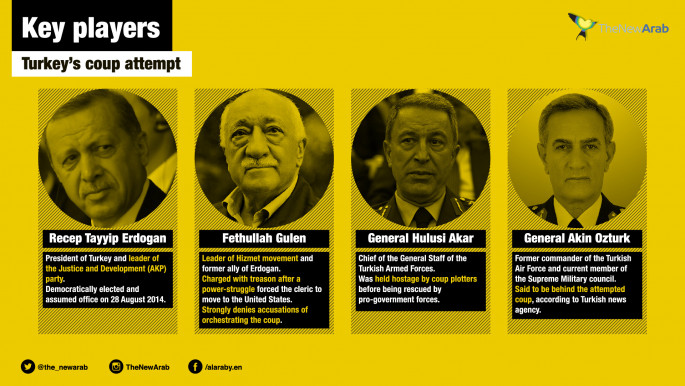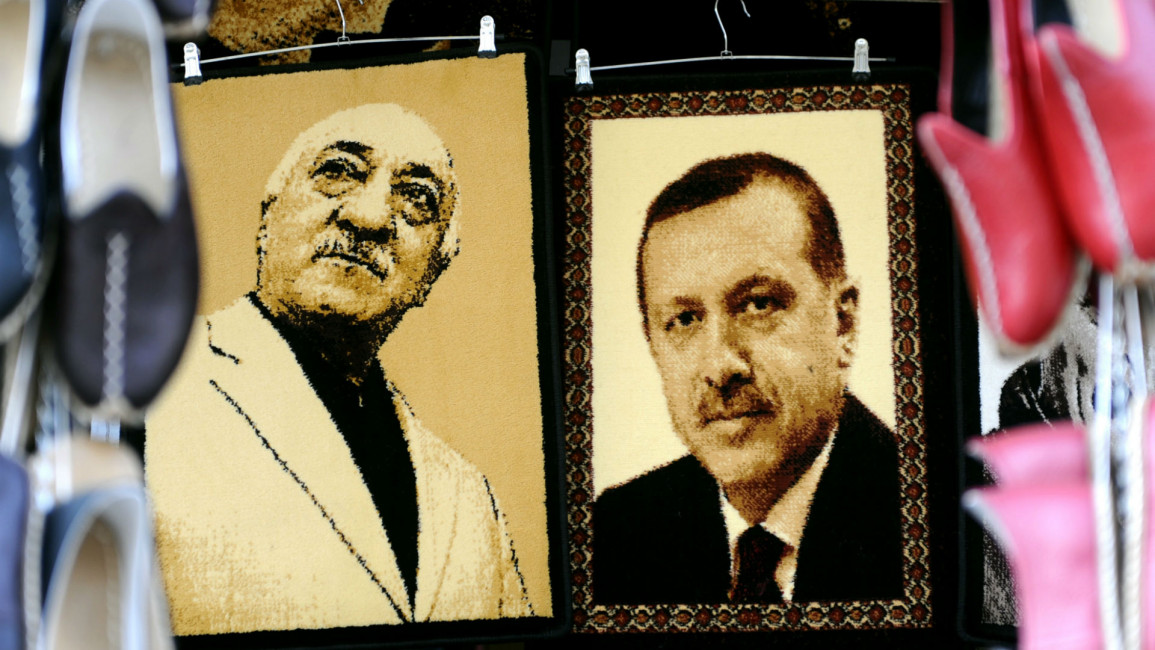When friends become enemies: the Gulen-Erdogan rivalry
US-based Turkish cleric, Fethullah Gulen, accused of orchestrating the military coup attempt in Turkey, has denied any involvement in the events on Friday.
The Islamic preacher has a wide following in his native country, where he has preserved support among the police and judiciary, despite living in a secluded town in the Pocono Mountains of the US state of Pennsylvania, prompting president Erdogan to pin the blame on his former ally.
However, Gulen has adamantly denied any role, and condemned the coup attempt "in the strongest terms."
"As someone who suffered under multiple military coups during the past five decades, it is especially insulting to be accused of having any link to such an attempt. I categorically deny such accusations," Gulen said in a statement late Friday.
"I condemn, in the strongest terms, the attempted military coup in Turkey," read the two-paragraph statement.
"Government should be won through a process of free and fair elections, not force.
"I pray to God for Turkey, for Turkish citizens, and for all those currently inTurkey that this situation is resolved peacefully and quickly," he said.
Gulen, 75, was a former close ally of the current leader but the powerful presence and influence of his Hizmet movement among Turkish society - reports suggest 10% of Turkey's population support the movement - led to a power struggle between the two politicians.
 |
Gulen, 75, was a former close ally of the current leader but the powerful presence and influence of his Hizmet movement among Turkish society led to a power struggle between the two politicians |  |
The preacher, described by western media as an imam who "promotes a tolerant Islam which emphasises altruism, hard work and education", left Turkey for the United States in 1999 and was later charged with treason.
In late 2013, escalating tensions reached an all-time peak after judicial officials believed to be close to Gulen directly implicated officials close to Erdogan's inner circle, including his son Bilal.
The president was forced to launch a tirade of counterattacks, including abolishing hundreds of army officers and generals, shutting down Hizmet-run schools and dismissing hundreds of police officers.
Media organisations were also targeted with several editors believed to work for Hizmet-allied newspapers being fired from their posts.
Authorities have long accused Gulen of seeking to establish "a state within a state" but senior Hizmet officials maintain their leader is committed to democratic reform and interfaith dialogue.
"For more than 40 years, Fethullah Gulen and Hizmet participants have advocated for, and demonstrated their commitment to, peace and democracy," the Alliance for Shared Values said in a statement on Friday.
"We have consistently denounced military interventions in domestic politics. These are core values of Hizmet participants. We condemn any military intervention in domestic politics of Turkey."
The group refrained from speculating on the events of Friday 15 July, but denounced Erdogan's accusations as "highly irresponsible".




